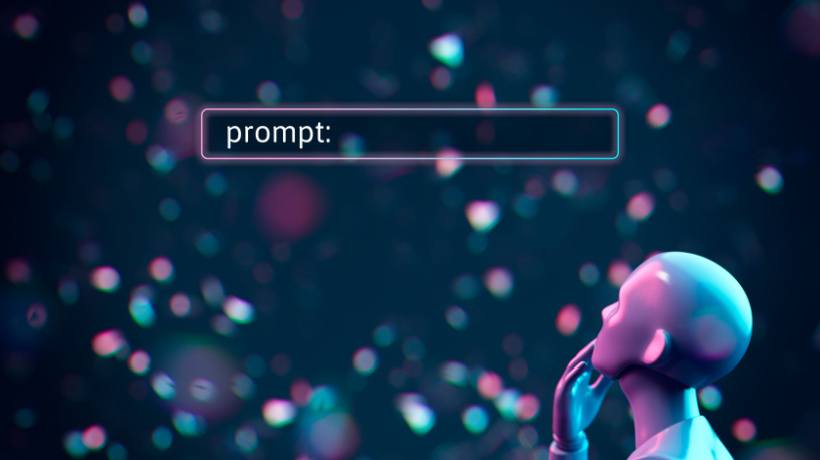Crafting CLE Course Descriptions Using ChatGPT
Continuing legal education (CLE) is the lifeblood of legal professionals, providing them with the vital updates and knowledge required to navigate the complex and ever-evolving legal landscape. Bar associations are at the forefront of this educational endeavor, offering a diverse array of CLE courses designed to equip attorneys with the latest insights and skills. Yet, the success of these programs often hinges upon the ability to communicate the essence and value of each course effectively. In this digital age, where attention spans are fleeting and the competition for legal practitioners' time and investment is fierce, the art of crafting compelling CLE course descriptions has become more crucial than ever.
The journey to a well-attended CLE course begins with an eye-catching course title and a concise yet powerful overview. The course description serves as the initial touchpoint, a brief encounter in which potential participants decide whether the content is worth their precious time. Hence, the importance of engaging, informative, and enticing descriptions cannot be overstated. In this article, we present some ChatGPT prompts that bar associations can employ to construct course descriptions that captivate their target audience, delivering not only what the legal professionals need but also what they want.
How To Use ChatGPT Prompts To Craft Course Descriptions
Course Title And Overview
- Prompt
"Please provide a catchy title and a concise overview of the CLE course."
A compelling course title is often the first thing that catches the eye of potential participants. In the overview, highlight the key objectives and benefits of the course, emphasizing what makes it relevant and valuable to legal professionals.
Learning Objectives
- Prompt
"What are the specific learning objectives of this CLE course? What should participants be able to do or understand after completing it?"
Clearly-defined learning objectives give attendees a sense of what they will gain from the course. Use this prompt to describe the knowledge, skills, and insights participants can expect to acquire.
Target Audience
- Prompt
"Who is the ideal audience for this CLE course? Please provide details about their experience level, practice area, and any other relevant characteristics."
Understanding the intended audience helps potential participants assess whether the course is suitable for them. Be specific about the level of expertise and specialization the course caters to.
Curriculum Highlights
- Prompt
"List the key topics and modules that will be covered in the CLE course. Provide a brief description of each."
Highlighting the course content helps attendees gauge the depth and relevance of the material. Describe the most important subjects and provide a glimpse of what each module entails.
Expert Instructors
- Prompt
"Introduce the instructors or facilitators for the course. Share their credentials, experience, and why they are well-suited to teach this material."
The credibility and expertise of the instructors can significantly influence the decision to enroll. Share details about the instructors' qualifications and what makes them exceptional educators in the legal field.
Interactive Elements
- Prompt
"What interactive elements or teaching methods will be used in the course, such as case studies, group discussions, or practical exercises?"
Engagement is key in adult learning. Explain how the course will keep participants actively involved and how it will enhance their learning experience.
Continuing Education Credits
- Prompt
"Detail the number of CLE credits that participants can earn by completing this course. Are there any accreditation or approval details?"
Many lawyers need CLE credits to maintain their licenses. Provide clear information about the credits available, including any specific accreditation or approval.
Testimonials And Past Success
- Prompt
"Share any success stories, testimonials, or feedback from previous participants of this CLE course."
Feedback from past attendees can be a powerful tool for promoting a course. If available, include quotes or anecdotes that highlight the value and impact of the course.
Resources And Materials
- Prompt
"What materials, resources, or tools will be provided to participants during or after the course? Are there any supplementary reading materials or resources?"
Mentioning the resources participants will receive can pique their interest. Whether it's course materials, reference books, or online tools, provide a comprehensive list.
Registration And Contact Information
- Prompt
"Provide clear instructions on how to register for the course, including registration deadlines, fees, and any discounts available. Also, include contact information for inquiries."
The final prompt is all about making it easy for interested individuals to take action. Include a step-by-step guide to registration and ensure potential participants can reach out with any questions.
Conclusion
Crafting compelling descriptions of CLE courses is crucial for bar associations looking to attract legal professionals to their programs. Using ChatGPT to generate responses to these prompts can streamline the process and result in engaging, informative, and persuasive course descriptions. By focusing on course details, learning objectives, expert instructors, and other critical elements, bar associations can effectively communicate the value of their CLE courses, ultimately serving the needs of the legal community.
